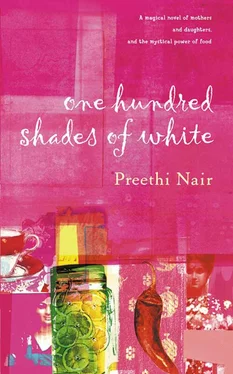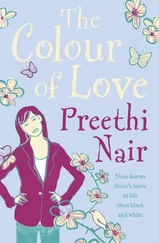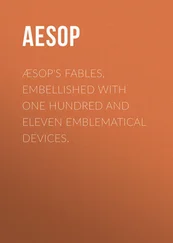If the lady was dark, rake-thin and had buckteeth, then Laxmiammayi couldn’t do much about that and the man’s family would ask for an extortionately high dowry to take her away. If, however, the family background checked out all right, the lady was pretty, well mannered, not belligerent in any way and could cook, then sometimes they would wave the dowry altogether. It was very rare, but this is what I think happened to my Amma. She was all of those things and could cook exceptionally well, due to the fact that she and my Ammamma were the village cooks. But even not having to pay the dowry didn’t make my Ammamma happy; she became upset at the bit when she told me how Amma left home and then said she really couldn’t talk about any of it.
My parents married when she was seventeen and he was twenty-six. The astrologer says that when an event takes place, like a birth, death or marriage, then something else happens in quick succession. ‘Nature responds,’ he says, ‘and moves things around in accordance with the new energy.’ So after they married, an enormous combustion of luck moved them to a bigger town and promoted Achan once again. He became chief oil importer for India and Amma had to move out of the village and settle in a town near Mumbai.
My brother Satchin’s arrival a year later sent my Achan soaring to the dizzy heights of true success and gave my family four more servants, including a kitchen hand for the irritable cook, and ten more cows. It also brought my Ammamma to come and live with them. My Ammamma wasn’t really a town person; she said that people are born city people, town people or village people, and she was definitely a village person. Village people understood how nature worked whereas town and city people couldn’t because the pace was just too fast to be able to take all the signs in properly. The pace of village life definitely ran through her whole body, she said, and although people gossiped, they had something very solid about them; they were firmly grounded and had time to stop and notice things. But Ammamma never complained about the move to the north and said that sometimes you have to do things even if you don’t like them because it makes other people happy and that in turn made her happy.
They all lived in a big, white colonial-style house with a red roof and matching floor tiles. The house was encircled by many, many gardens and was protected by trees and huge iron gates. Although it was near the town you would never have known as a sea of tall palms kept the noise of traffic, pollution and bustle at bay. It was a very comfortable life: my Achan would go out to work, my brother would chase anything that moved, and the whole household would run after him. Amma spent lazy afternoons talking to neighbours who came to visit or went shopping for groceries and other items with Ammamma and Nila, her servant boy, or she would cook. At five o’clock sharp, Satchin would sit looking out of one of the windows, waiting for Achan’s blue scooter to pull into the veranda, and then he would indicate by some blubbering that he was waiting to be taken out for a ride.
My arrival hindered this ritual that he had set up for himself. Now at five o’clock, my Achan would walk into the room and head straight for where I was sleeping. He would pick me up and rock me and his odour of damp linen and the musty scent of burnt wood would waft in the air with the motion. His moustache tickled my ear, a soothing presence like his voice which was deep and rhythmic. Whilst I was in his arms, Satchin would pull at his trouser leg, a technique he had learnt with Nila and the mango trees; Nila would shake the trunk and he would watch the mangoes fall one by one. Satchin secretly hoped I would meet the same fate. Achan would laugh and hoist Satchin up and say ‘Give our little Maya Mol a kiss,’ and so he would salivate over my face, accidentally biting me in the process. Achan would stay for a while and then he had to leave; he was a very busy man.
I was especially close to the young Aya who was assigned to assist with my care. Her particular role was to make sure I got to sleep okay and, if I awoke, to see if I needed anything. She did her job so beautifully and sang melodically whenever she could, the tunes whistled through the gap in her teeth. Aya was unlike the old toothless woman who didn’t understand her own job description and thought she was there to make sure my blood circulated correctly. She did this by vigorously knocking my joints with her bony hand. Then she would massage me like she was stretching out a piece of dough and put me in this cradle-type thing made from starched sheets, and hang me out to dry like some old piece of popadom. But this, along with bath time, was the only hardship I had to endure and attentive people were never really far away, my Achan being at the very front of all of them. If he was on one of his trips then it was Ammamma who I needed.
When she went to bed, she would pick me up and take me with her, cradling me against her warm flesh as she told me stories. There was, she began, a musician who lived in the sky who was responsible for changing the seasons. In the dry season, people planted their dreams and then they waited patiently for the musician to send the heavy rains; if they didn’t believe enough, the rains flooded their dreams, but if they held on with faith, trusted and let go, the rain would bring them many things and these things came in the month of Shravan, harvest time. Ammamma knew lots about harvest time and food because, as I said already, she was a cook. She and Amma would spend hours in the kitchen and Aya would take me in to watch them.
They worked like two magicians and with smoke they could turn piles of vegetables and colourful spices into feasts. Amma would point at the vegetables and tell me the names and all I had to do was to gurgle something back at her and that was enough to make her laugh. It took me a year to realise that this pointing game was a distraction because as she was pointing, Ammamma was getting the condiments ready for bath time. Bitter gourd skin mashed into a pulp, chickpeas ground into flour, and coconut oil, all prepared and on standby. Before I knew it, my clothes were removed. Aya would be running round quickly heating pots of water whilst I was placed on Amma’s outstretched legs. I wailed as she covered me in green gunk and yellow flour, ‘for healthy bones and beautiful skin, Mol,’ Amma would say, trying to console me. Then as I was washed and dried, coconut oil was poured on my head and massaged in and, after that, she tried to feed me. As a sign of protest, I spat out everything she placed in my mouth so Ammamma had to take over. When the whole ordeal was over, Aya took me to play in the sun. I learnt to hate the sight of the kitchen and when I was old enough to crawl, I would do my very best to scramble out of the situation but they would always get me.
As I began to walk and talk, Satchin found me interesting. He taught me how to put straw up the cows’ noses so we could make them sneeze and measure how far the mucus landed with our footsteps. This seemed to divert us for hours and we only stopped this because one of the cows lost her calf and she cried for days. The cow mucus game was replaced with another distraction: Satchin showed me how to open the catch of the chicken coop so they would all run freely on the compound and Amin, the hand, had to go and catch them all. Amin would panic at seeing the chickens everywhere and we would watch him jump up and down, running around chasing them. The driver only helped if he wasn’t too busy combing his hair in the car mirror or sitting in the front seat admiring his newly acquired decorations. When he did help, we would jump into the front seat of the car, lock the doors and begin playing with the horn.
‘Sahib will be very upset with you,’ he shouted through the side window.
Читать дальше












